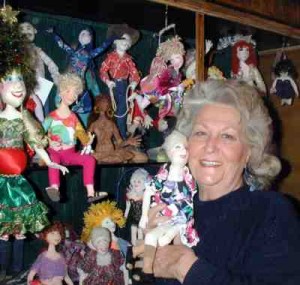Essay by John Mattingly
Sheep – April 2006 – Colorado Central Magazine
AS A FARMER who’s ranched enough to know better, I’m very sensitive to crop and creature mistakes in movies — things like corn tasseling in January in Iowa, or Longhorns morphing into Herefords from one scene to the next.
There’s a rural myth about the County Agent who came out to the ranch to help preg check cows. The rancher ran a fat steer into the chute, asked the Agent to check it. After a deep search, the Agent determined the steer to be 3 months pregnant.
It may be that movie directors understand the ranching IQ of most folks is on par with this mythic County Agent.
Brokeback Mountain contained several glaring mistakes that ultimately prevented me from enjoying the film.
First, when the range boss hires the two fellers, he says he “lost 25% of the herd on that range last year.”
Any sheep rancher will tell you: if you lost 25% of your herd on a grazing permit, you would not go back to it, even if you sent along a pair of good- looking guards. A 2% death loss is considered within the range of decent management. Anything above 5% is reason to change your program.
Second, in all the stunning scenery of Brokeback Mountain, I saw sheep moving, but I didn’t see much grass. Sheep do need grass.
Third, if a sheep rancher had a death loss that justified a couple of hired guns for protection from predators, those hired guns would stay with the sheep 24- 7. They wouldn’t camp off somewhere on the side and commute to work.
Furthermore, it would be the job of the range boss to bring in supplies on some sort of schedule to insure the men’s daily dedication to scaring off coyotes, bears, mountain lions, and cowboys.
I ran 3000 ewes and lambs up on Bristol Head — upper Rio Grande Basin — in the early 1990s, and all our hired guns stayed with the sheep all the time. This just makes sense. If the two protagonists of Brokeback Mountain had been doing their job properly, they would have had more opportunities to express their sexuality with another species than with themselves.
On the Bristol Head grazing adventure, we had a herder named Severo. He told me a story about some cowboys who came around one day and accused him of loving his sheep a bit too much at night. Severo, a patient and mild- mannered man, told the cowboys he didn’t love his sheep at night, but he suspected someone did, because, well, where else would cowboys come from?
But the most remarkable event that season occurred in late September when the ewes and lambs were driven down off the permit for loading. The herd had to cross Big Spring Creek near the point where it crosses Highway 149 between Creede and Lake City. The ewes refused to cross the creek. We employed several tried- and- true strategies: fence funnels, scurry herding, and carrying a prominent ewe to the other side as an example. None of these worked.
Finally, when we were all exhausted from trying, the ewes decided to cross the creek on their own.
The story should end here, but this is where it starts. Big Spring Creek is lined with thick willows on both sides. The ewes started across, and we were so pleased with the irony of our success, we sat back and watched. Soon, however, the ewes passing by us were soaking wet.
SURE ENOUGH, the ewes had crossed the creek in front of us, scampered upstream a ways under the shade of willows, and re- crossed the water to join the back end of the primary herd at a point obscured from our view. We now had a circulating ring of sheep. Several people stopped on the highway to watch. A guy in leathers who’d arrived with a group of bikers shouted, “Hey, what are you guys doing, anyway?”
It wasn’t easy to stop the herd from re- crossing the creek. Try as we might, the ewes eluded us, literally throwing themselves in the creek rather than staying on the dry ground they had refused to leave only an hour before. That herd’s inclination to swim back around defied rigorous counter measures. Not unlike the attraction between the protagonists in Brokeback Mountain.
John Mattingly writes from the greater Moffat area, where he also farms when he can’t get out of it.

